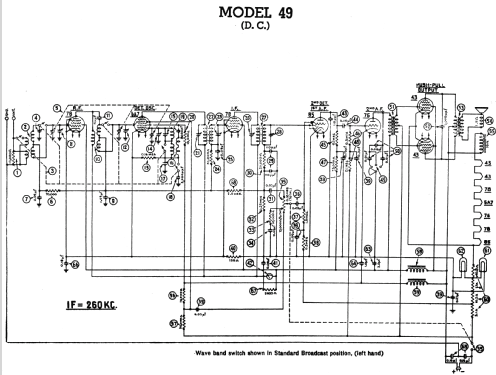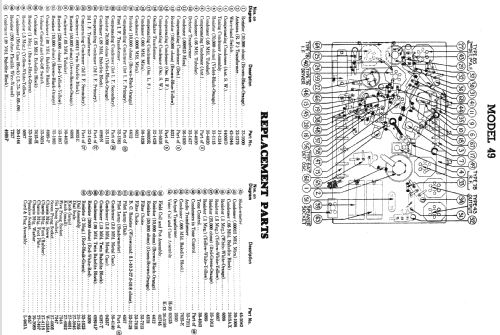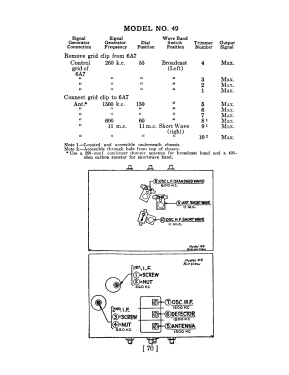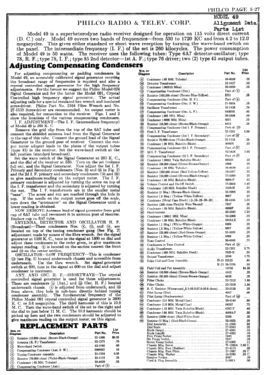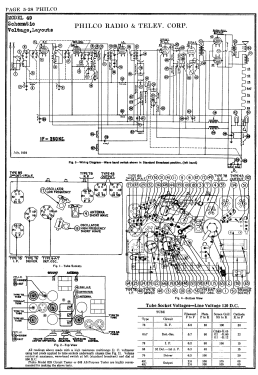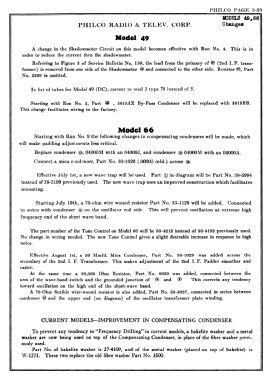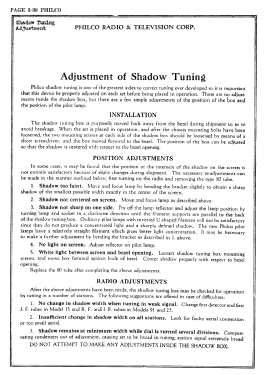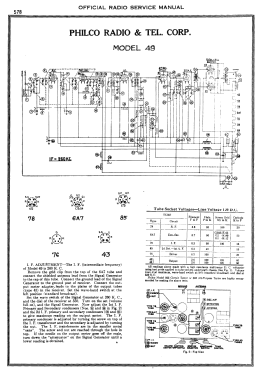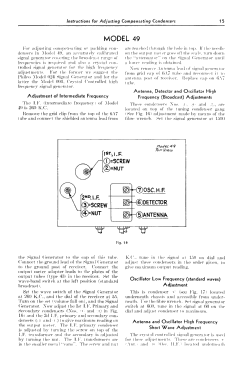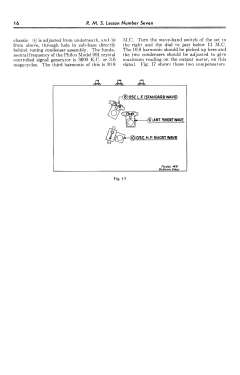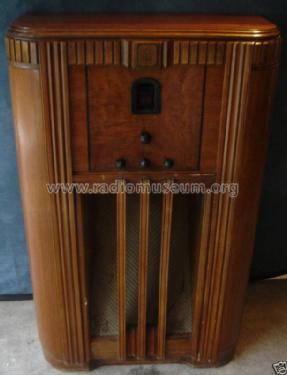- País
- Estados Unidos
- Fabricante / Marca
- Philco, Philadelphia Stg. Batt. Co.; USA
- Año
- 1934
- Categoría
- Radio - o Sintonizador pasado WW2
- Radiomuseum.org ID
- 140602
Haga clic en la miniatura esquemática para solicitarlo como documento gratuito.
- Numero de valvulas
- 7
- Principio principal
- Superheterodino con paso previo de RF; ZF/IF 260 kHz
- Gama de ondas
- OM y OC
- Tensión de funcionamiento
- Red: Corriente continua (CC, inglés = DC) / 115 Volt
- Altavoz
- Altavoz electrodinámico (bobina de campo)
- Material
- Madera
- de Radiomuseum.org
- Modelo: 49X [Late] - Philco, Philadelphia Stg. Batt
- Forma
- Consola en general
- Anotaciones
-
The Philco model 49 series uses a 7-tube 2-band (BC and SW 4.2-12 MHz) chassis designed for DC mains power. The design is roughly based on that of model 118, but without rectifier tube. The series includes seven individual models with different cabinet styles.
The early version (1934) of the model 49B table radio is a cathedral with a scalloped top. The late version (1935) is a shouldered tombstone having a shield-shaped speaker opening with three vertical and three horizontal bars through the opening.
There are three highboys. Model 49H (1934-35) has six legs and a Y-shaped speaker opening with vertical bars. The early version of model 49D (1934) has six legs, rounded sides, and doors. The late version of 49D (1935) is very similar, but has waterfall moulding at the bottom of the main cabinet structure.
The early version (1934) of the model 49X floor-type console has a classical design with three round pillars in front of its inclined sounding board. The late version of 49X (1934-35) is somewhat more modern in design, with three square fluted bars in front of the speaker and an emblem at the top center.All versions include a shadow meter (tuning aid).
- Procedencia de los datos
- Philco Radio 1928-1942
- Referencia esquema
- Rider's Perpetual, Volume 5 = ca. 1934 and before
- Documentación / Esquemas (1)
- Philco 1928-36 Wiring Diagrams, Parts Lists, and Essential Service Data
- Autor
- Modelo creado por Thomas Albrecht. Ver en "Modificar Ficha" los participantes posteriores.
- Otros modelos
-
Donde encontrará 4063 modelos, 2220 con imágenes y 3711 con esquemas.
Ir al listado general de Philco, Philadelphia Stg. Batt. Co.; USA
